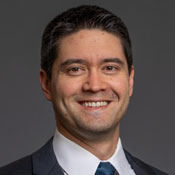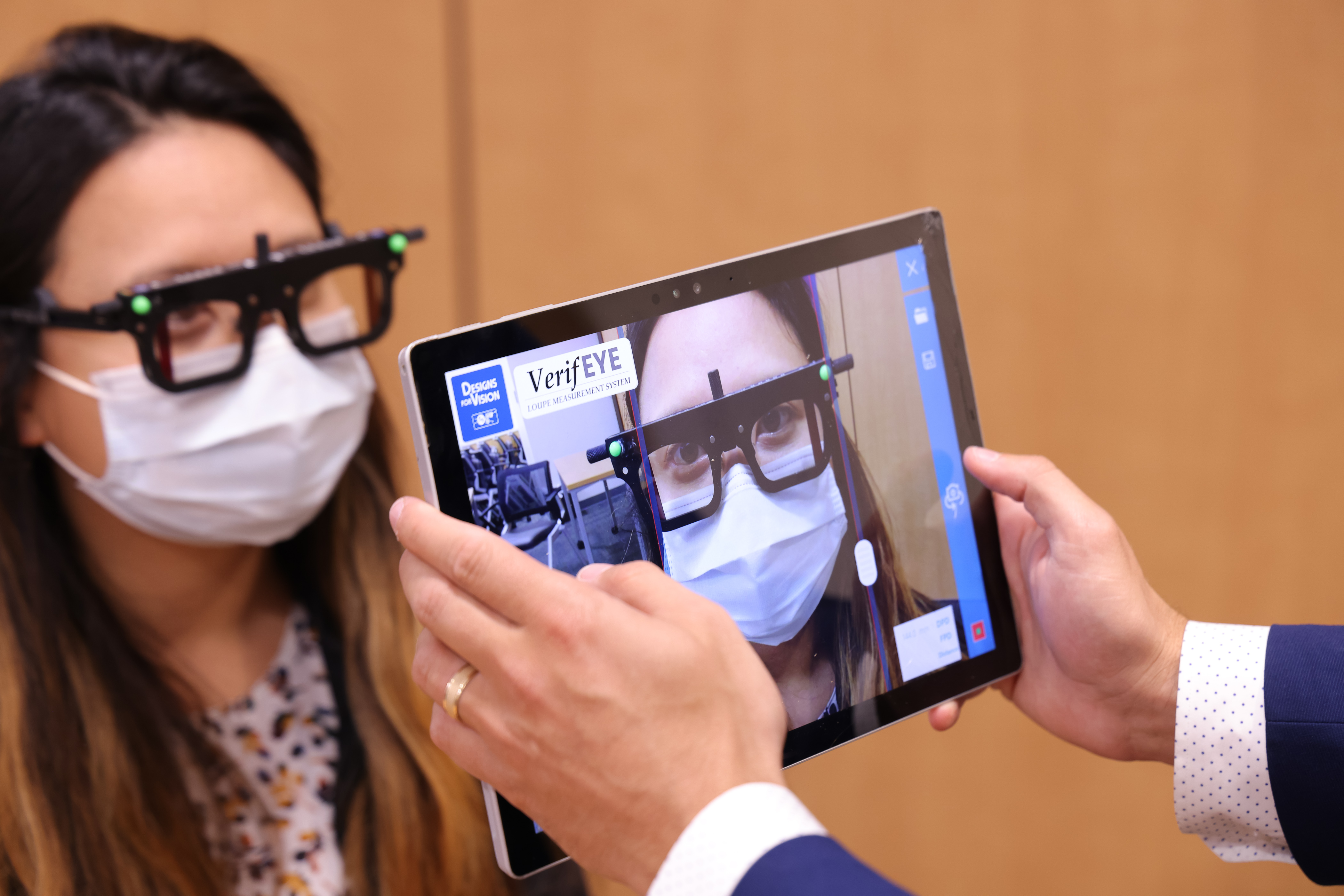As a 2011 graduate of the Duke Ophthalmology Residency Training Program, Nicholas Ramey, MD, not only received the necessary training to pursue his career in ophthalmology, specializing in oculofacial reconstructive surgery, but he also enjoyed an experience and camaraderie with his fellow residents that has stayed with him a decade later.
Ramey has always felt a strong connection to the program and maintained a relationship with Pratap Challa, MD, the Duke Ophthalmology Residency Program Director. “My residency was the highlight of my whole educational journey,” Ramey says. With this strong connection, he knew that one day he would contribute to the experience of residents who came after him.
In thinking about his own experience in the program, he recalled a need for surgical loupes, which are magnifying devices that enhance the field of sight for accuracy and precision during surgery.
 “When I was a resident, the program did not have the funds to provide loupes for each trainee. There were maybe one or two pair that the residents would share, and with 16 residents, it’s not necessarily compatible for everybody being able to use them,” says Ramey.
“When I was a resident, the program did not have the funds to provide loupes for each trainee. There were maybe one or two pair that the residents would share, and with 16 residents, it’s not necessarily compatible for everybody being able to use them,” says Ramey.
Some residents will pay out of pocket or find other funds to cover the cost of their own loupes. Ramey thought there might be a better way, so he reached out to Duke Health Development and Alumni Affairs to discuss supporting the residency program by providing loupes to all residents.
Ramey provided a generous gift to the Duke Residency Program in 2021 that supports each resident getting their own pair of loupes. Residents should be able to use the devices long after they complete residency training.
“Dr. Ramey’s gift provides a tremendous opportunity for our residents,” Challa says. “We are grateful that the program means so much to him.”
Now that the fund is up and running, it has grown to include other educational needs.
“It’s not just a loupes fund but a fund to support resident education,” Ramey says. “The first year, none of the residents had their own loupes, so it was a big outlay to bring 18 residents up to speed. I’m still donating the same amount for the next several years, so only the incoming six residents will need them, which means two-thirds of the money will go to other things like microscopes.”
Ramey says his only regret about giving is that he didn’t do it sooner. He felt he had to reach a certain point in his career to give a larger amount, but he now realizes that even smaller gifts can have a big impact.
“Even if it’s not a huge gift, anything really can help,” he says. “I would advise people to touch base with the department early and start the conversation, whether you feel you’re fully ready for it or not, because it can be productive even if you’re not at the level you envision.”
 Ramey says he’s grateful for the opportunity to help give future residents the same life-changing experience he had at Duke.
Ramey says he’s grateful for the opportunity to help give future residents the same life-changing experience he had at Duke.
“I’m just happy and proud to be part of the program that gave me so much, and hopefully this will help others have that same experience,” he says.
For more information on how you can support Duke Eye Center, please visit https://dukeeyecenter.duke.edu/donate-and-give.